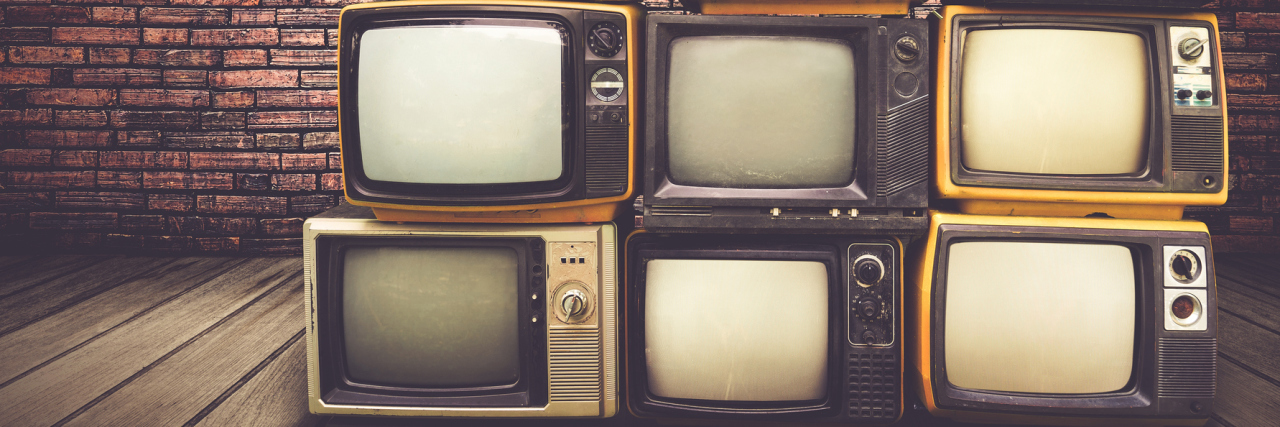Recently I have read multiple stories on personal blog posts and The Mighty about people being offended by television or movie misrepresentation of their illnesses. Why do people become so angry about such things? Personally, I don’t get upset when television sitcoms make fun of or misrepresent an illness, such as when ABC’s “American Housewife” Katie Otto (played by Katy Mixon) faked having Lyme disease to get out of volunteering at her daughter’s school. I find those episodes to be just what they were intended to be… humor. I believe that if we can’t laugh at ourselves sometimes, then we will just be miserably existing in our misunderstood bodies.
However, when a show or movie misrepresents a disease or illness, downplays its severity, or gets the facts wrong, it makes me a bit frustrated. I have been diagnosed with multiple rare disorders, one of which is mitochondrial disease. This is a very misunderstood illness that is often downplayed in the media. Even national news stories have come up questioning the validity of the illness, and blaming the parents for making their child sick rather than looking at the illness itself.
This type of reaction by the medical community was highlighted in an episode of NBC’s “Chicago Med” when the medical team accused the father of a girl diagnosed with mitochondrial disease of child abuse, and then stated her symptoms were psychological in nature by stating mitochondrial disease is a “wastebasket” diagnosis.
I feel like TV dramas that highlight medical disorders have a responsibility to accurately represent those disorders in their shows.
I was happy when an episode of ABC’s “Grey’s Anatomy” portrayed a woman with Ehlers-Danlos syndrome (EDS). In that episode they highlighted the struggles patients with rare diseases go through when attempting to seek medical treatment. They showed her mistreatment in the ER by having the medical professionals treat her like a chronic drug user since she comes in for fluids regularly to treat her symptoms. (I can relate since I too require regular fluid infusions for my illness, resulting in multiple questions by medical staff.)
They showed the anguish she endured every time she tries to advocate for her medical needs. However, they then showed what it looks like to have a doctor understand and diagnose the symptoms accurately. Once diagnosed with EDS, the medical team took her seriously and portrayed the seriousness of the illness by stating that it can be a life-threatening condition, especially if untreated. They accurately portrayed the illness for what it is, but they also accurately portrayed the struggle of those living with chronic illnesses to be heard by the medical community.
I believe there is a time and place for disability humor. The ABC comedy “Speechless” has done a wonderful job of making comedy centered around the main character, JJ DiMeo’s (played by Micah Fowler) disability, cerebral palsy (CP). It is one of the few shows that has actually casted a person with CP to play the character, which I believe is far too rare in Hollywood. This show highlights the struggles of living with a physical disability, as well as the unique way it affects the family. The show has been able to accurately portray the multiple struggles and unique strengths associated with having a disability in a light-hearted, comedic way.
Ultimately, I find it refreshing to be able to laugh at disability because if we can’t find humor in our unique situations then we will only be left with the despair and loss associated with it. I don’t get too worked up when television and movies “fake” illnesses like the episode of “American Housewife.” As a person who spent 15 years searching for a diagnosis, and being told multiple times I needed to see a psychiatrist, you would think I would be more offended. However, I believe you have to take it for what it is meant to be… humor.
I’m sure networks such as ABC don’t intend to harm those living with these conditions. I can understand why people become upset at such episodes, but, I believe that, we in the disabled community, need to learn to let go of some of that anger, or we will let it fester into something unhealthy.
I will applaud ABC for their inclusion of disabilities in their multiple shows, and their willingness to go against the grain sometimes. That being said, I do feel there is a time and place to get it right. When it comes to medical dramas intending to portray an accurate representation of the diseases and illnesses, I feel they have a responsibility to get it right. We must continue to educate the media, society, and medical professionals about the facts associated with our rare illnesses to ensure further understanding and acceptance.
We want to hear your story. Become a Mighty contributor here.
Thinkstock Image By: jakkapan21

